
As the film begins, certain Nani 'gadu' starts narrating his socio-fantasy story to actor Srikanth. When the narrator unashamedly tells that the king could be anyone, you shudder to think about the director's zero-size knack for his craft. As the film progresses, one feels sorry about two facts: If the story sounds like a private joke of a 7th Standard school-going boy who mocks about the historical greats with his characteristic foolishness, the narration is like sitting through a more than two-hour-long second-rate item song.
Dora Babu (Srikanth) is a lecherous drunkard, who lives the life of a lowly hedonist in a village situated on the banks of Godavari. Vulgar and cheap, he is a guiltless womaniser. Constantly massaging his ego are his companions (Jeeva, MS, etc), who are proud of his sexcapades. His life is filled with booze and cuss words (kudos to the scissors of the Censor Board, without which the film would have looked even more dirty) until the heroine enters into his life.
Just as he falls in love with his MTV's VJ-like damsel, he undergoes a hypnotic experience when he accidentally jumps into the village river near an undiscovered temple area. He gathers strength after losing all his energy after an arrac-guzzling bout, raises like a possessed man, fights those who have come to raze the temple with gusto, sits on the temple steps and twirls his moustache like the royal Devaraya. (First show audience who come to watch your movie on day one are usually the easiest to be convinced. As this crucial episode unfolded, even the frontbenchers did not feel like whistling for a moment.)
Dora Babu's behaviour sees a dramatic change after this episode. Juxtaposed with his immature self, is his Devaraya mien and language. What is the connection between the dumb D and the doughty D of the 15th Century? Nani Krishna's 'brilliance' lies in projecting the item song set in today's time into the bygone era with gay abandon. Yes, what is common between the two D's is something you will hate to even listen: they both have a weakness for sexy women!
The film opens with paying a tribute to the great Karma Bhumi called India. Throughout the history, religious fanatics destroyed temples and monuments, but the Hindu culture has survived. However, the great Vijayanagar empire fell into ruins because of some as-yet unexplored reason (a fiction in this film). Why did it fall? Has it anything to do with Krishna Devaraya's Shah Jahan-like idiocy which is worse than Dora Babu's lusty nature?
Forget history, anyone with even an iota of respect to the audience's intelligence would not like to write a story like this one. Forget story, the characterization of the main character is absurd. There is no compelling reason to show Dora Babu as an incorrigibly wayward romeo without morality but for the fact that a third-rate film maker always meets the criterion of that legendary story-teller of the famous 'aavu katha'. It doesn't matter whether he is telling the story of a Devaraya re-reincarnated or a Kalidasa reborn, all that he knows is how to play to the gallery by making the hero dance with sleazy women, speak bad words, and break into silly songs with his heroine for no good reason.
If Dora Babu makes you want to tear you-know-what, Devaraya's characterization agitates those with respect for historical figures and makes the weak-hearted cry. After heroically saying that he will always be bound by `daiva' and `dharma' (like the real Devaraya would have said), Nani Krishna's Devaraya goes to his muse's place (yes, he loves someone) incognito. This scene comes immediately after he is told that the empire faces an existential threat from King Babur.
So, there are many elements (king falling for a courtesan, he born after centuries to fulfil a promise, Jayaprakash Reddy wanting to build a cement factory at exactly the same place where Sage Vasistha worshipped Mother Goddess and so on), but where is the strong sense of story amidst all this? Firstly, Devaraya's character is fiction-writing at its worst. Not having any substantial similarity between the two D's is bad film-writing. Secondly, Babur and Jayaprakash Reddy are not the same. Thirdly, is the story nothing more than rebuilding a temple? If yes, it is like watching Kshetram all over again, with the change that two women dance in the climax.
Adding to our endless woes are the inimitably insensitive songs. "Pelliki mundu ramudu kaka poyina, pelli taruvata Ramudini ammayilu ishtapadtaru", the heroine says and the dialogue is followed by a sleazy duet song. Even after Devaraya takes over our Dora Babu, we are not relieved of the headache from such songs.
Srikanth behaves like Chiru at some places. He should not have taken up Devaraya's role, because he looked like an extension of his comedian self. Vidisha and Meenakshi Dixit do not make any impact. The comedians did not do comedy. Ranganath and Shivaji Raja are ok.
Technically, it qualifies to be called a second-rate film. The cinematography is sub par. Chakri, it seems, knew the film's lack of potential and gave a fitting music.
Released on: 7th Dec, 2012
Rating: 0 / 5.0
Showcase your talent to millions!!
Telugu Movie Reviews
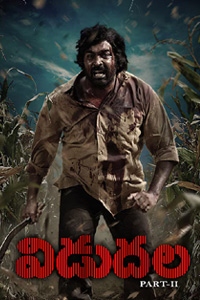 Vidudala Part-2
Vidudala Part-2
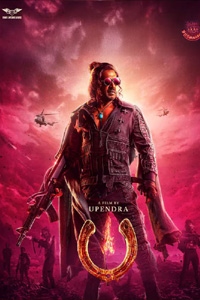 UI
UI
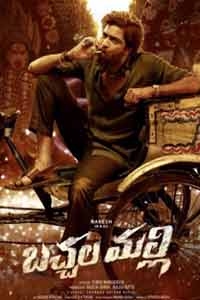 Bachhala Malli
Bachhala Malli
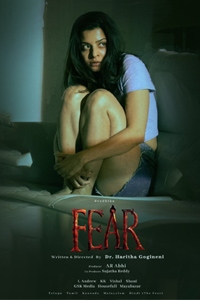 Fear
Fear
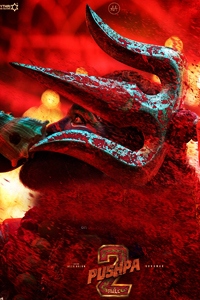 Pushpa 2: The Rule
Pushpa 2: The Rule
 Devaki Nandana Vasudeva
Devaki Nandana Vasudeva




Comments